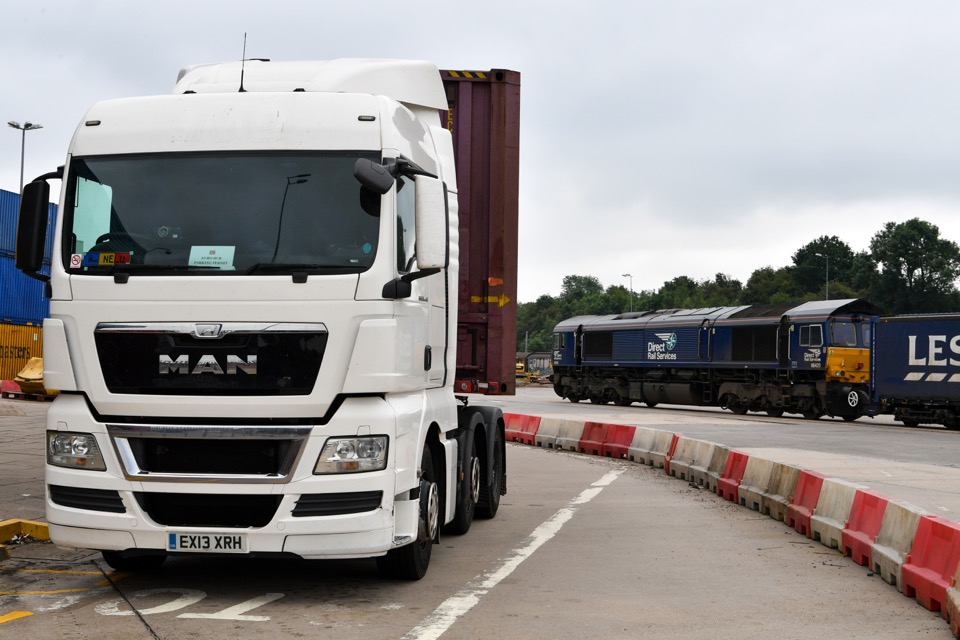The Chartered Institute of Logistics and Transport in the UK, CILT(UK), has an eye on the forthcoming General Election. Even though the date has not yet been set, the industry body is seeking to influence the manifesto’s direction. They do so regardless of who may take power in the coming year. Three of six manifesto requests have a direct bearing on rail freight development.
CILT(UK) has published what they call a comprehensive manifesto request. It outlines policy priorities and legislative recommendations for the future of the UK’s transport, logistics and supply chain sector ahead of the forthcoming General Election. The chartered body for professionals involved in the movement of goods and people has addressed all parliamentarians and politicians. They have set out their priorities for better planning, policy, and the implementation of rail freight-centric developments.
Holistic approach to freight, including rail
The manifesto request stresses the need for long-term funding commitments. CILT (UK) wants better local decision-making and policies to achieve net zero emissions across all transport modes. While seeking out specifics over road management and taxation of fuel, CILT(UK) is also looking for a holistic approach to freight, including rail. “Revise national policy statements for national networks (road and rail), energy, aviation and maritime to align contemporary needs with future aspirations”, says the Manifesto.
CILT(UK) say it has engaged experts from across the transport, logistics and supply chain sectors. They have put together a six-point plan aimed at the next government, regardless of its political persuasion. The document argues that limiting spending on transport would reduce productivity and tax revenues. The manifesto for logistics also argues local authorities should be given more autonomy over local transport decisions. It stresses that needs to be achieved while still coordinating with national networks.
Stable, long-term funding settlement
By law, the next General Election in the UK must be held by the end of a five-year term in power. That means, at the latest, the electorate will be choosing a new government in January next year (2025). With the Christmas break and minimum notice required, the date will be known before the turn of the year. However, most commentators are expecting an Autumn polling date. That provides a real focus for the political parties, preparing to face the electorate.

If the CILT(UK) manifesto points are to be adopted, then the main political parties have only a few months to respond. Most importantly for the freight carriers, the document calls for stable, long-term funding settlements for rail infrastructure and services. Achieving net zero carbon emissions across aviation, shipping, rail and road is highlighted as an urgent priority. CILT(UK) says that for any meaningful progress to be made, these recommendations need to be implemented in the first 18 months of the new government.
Transport policy deserves serious debate
CILT(UK) recommends government support for industry-led initiatives to develop electric and alternative fuel vehicles, renewable energy charging infrastructure, and incentives to shift freight from road to more carbon-efficient rail and maritime routes. The representative body also emphasises the need to develop skills and training. They say this is vital to supporting the transition to electric transport and new supply chain roles.
“Transport, logistics and the supply chain is pivotal to so many issues voters care about – jobs, communities, climate change, air quality”, said Daniel Parker-Klein, their Director of Policy and Communications. “That’s why transport policy deserves serious debate in the run-up to the election. We hope this document can help raise the level of discussion and help guide the next government in developing prudent, far-sighted policies that deliver a world-class twenty-first-century transport system for the UK.” The Chartered Institute of Logistics and Transport may not be standing for election itself, but it is clearly asking for the industry to be taken into account when voters make their electoral choices.